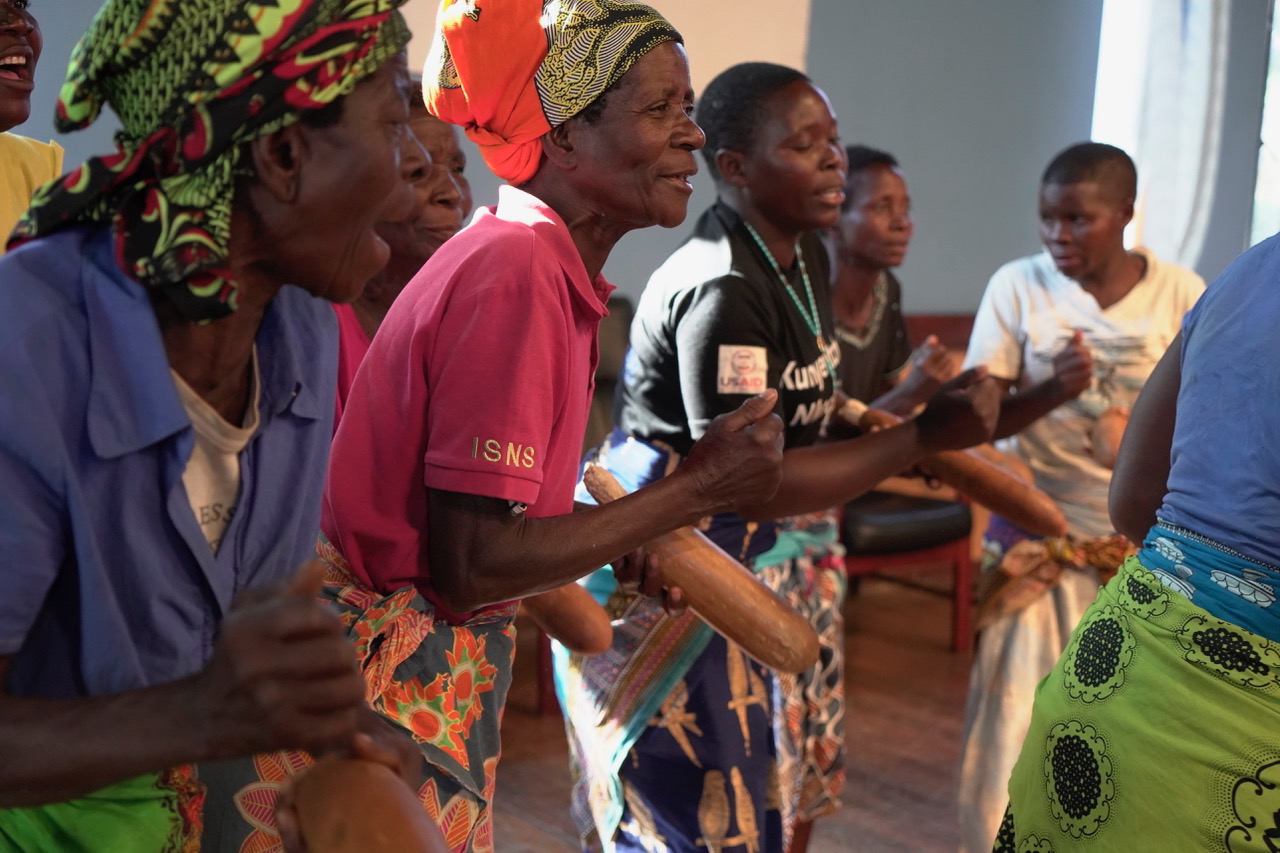Mapping Malawi's arts and culture industries
24 July 2023

Women dancing a traditional Malawian dance
Rei Foundation Limited (RFL) and the Malawi National Commission for UNESCO (MNCU), in keeping with their commitment to the Malawian arts and culture scene, are pleased to announce the funding of a new study entitled Mapping Exercise of Malawi’s Arts and Cultural Industries, intended to assess the Malawi cultural sector. This is the second time that RFL and MNCU have co-operated on a research grant for a culture-related research project in Malawi.
With this research grant series, MNCU and RFL seek to build a vibrant community of researchers in the fields of arts and culture in Malawi that support each other and develop meaningful connections with practitioners in the arts, in order to vitalise the Malawian arts and culture sector and ensure knowledge is utilised effectively. Academic knowledge is too often kept within the domain of academics and researchers and not shared effectively with practitioners and the general public. On the other side, many practitioners do not have the financial wherewithal or technical knowledge required to access, understand and utilise the research done in their communities. Alternatively, the research that is created is not always relevant or useful to the practitioners.
With this research grant series, MNCU and RFL seek to build a vibrant community of researchers in the fields of arts and culture in Malawi that support each other and develop meaningful connections with practitioners in the arts, in order to vitalise the Malawian arts and culture sector and ensure knowledge is utilised effectively. Academic knowledge is too often kept within the domain of academics and researchers and not shared effectively with practitioners and the general public. On the other side, many practitioners do not have the financial wherewithal or technical knowledge required to access, understand and utilise the research done in their communities. Alternatively, the research that is created is not always relevant or useful to the practitioners.
A collaborative effort, particular research this project will be co-led by Zindaba Chisiza, a lecturer in Drama at the Department of Fine and Performing Arts and Gowokani Chijere Chirwa, from the School of Law, Governance and Economics, both at the University of Malawi. Chisiza’s deep knowledge and involvement with the local art communities combined with Chirwa’s wide-ranging economic expertise will enable them to develop a robust, thorough and accurate portrait of the cultural and economic impact of the arts.
The study is designed to gather high-quality information that builds on Rei Foundation and MNCU’s work in Malawi, creating a solid knowledge base for the Malawian arts and culture sector that will be utilised by researchers, policy and decision makers, and arts and culture practitioners. The study also seeks to understand the impact of arts and culture on Malawi’s Gross Domestic Product (GDP). Chisiza says in The Nation that, “We have all these cultural festivals in Malawi and they bring in money and resources, not just money. For many years the support that you get from the government sometimes is sporadic. Even from the private sector is sporadic” He compares Malawi’s cultural sector to the developed framework in place in Nigeria and South Africa and says, “We want to make recommendations on the part of structure changes and policy interventions required to make the sector more viable”. By analysing the information collected, a path or plan should emerge to determine what changes can be made to encourage growth in the sector. It is also hoped that this will stimulate policy intervention.
The study is designed to gather high-quality information that builds on Rei Foundation and MNCU’s work in Malawi, creating a solid knowledge base for the Malawian arts and culture sector that will be utilised by researchers, policy and decision makers, and arts and culture practitioners. The study also seeks to understand the impact of arts and culture on Malawi’s Gross Domestic Product (GDP). Chisiza says in The Nation that, “We have all these cultural festivals in Malawi and they bring in money and resources, not just money. For many years the support that you get from the government sometimes is sporadic. Even from the private sector is sporadic” He compares Malawi’s cultural sector to the developed framework in place in Nigeria and South Africa and says, “We want to make recommendations on the part of structure changes and policy interventions required to make the sector more viable”. By analysing the information collected, a path or plan should emerge to determine what changes can be made to encourage growth in the sector. It is also hoped that this will stimulate policy intervention.

Men performing the Mapenenga dance
The project will focus on five separate areas specifically: visual arts and crafts, performing arts, design, media arts and cultural heritage. From the ancient UNESCO-listed Chongoni rock art area to innovative new media, from the country’s diverse cultural festivals to theatre and dance, the study aims for complete coverage.
Chisiza goes on to say, “We want to make a proper profile of the arts and culture sector. We want to know how many people are working in the sector, what type of work they are involved in and how they are paid for that work, their economic contribution and its impact to the economy and development of Malawi.”
They believe that ‘for the creative sector in Malawi to grow, there is a need to provide strategic direction for implementing policy interventions to harness its full potential as an important economic sector’.
Chisiza hopes that the work they undertake in developing this map of the Malawian arts scene will ‘spur structural changes, policy interventions and fast-track growth and development’.
Chisiza goes on to say, “We want to make a proper profile of the arts and culture sector. We want to know how many people are working in the sector, what type of work they are involved in and how they are paid for that work, their economic contribution and its impact to the economy and development of Malawi.”
They believe that ‘for the creative sector in Malawi to grow, there is a need to provide strategic direction for implementing policy interventions to harness its full potential as an important economic sector’.
Chisiza hopes that the work they undertake in developing this map of the Malawian arts scene will ‘spur structural changes, policy interventions and fast-track growth and development’.
The five-month-long project encourages collaboration and critical exchange and has been designed to involve key players and stakeholders from the very beginning, valuing their contributions and ensuring their engagement. These include cultural practitioners, cultural associations, NGOs in the arts and culture sector and relevant government departments, The intention is that the results of the study and its recommendations will be constructive to them and subsequently implemented.
Rei Foundation envisions this work will create a resource of high-quality information that will feed into our existing work, increase its effectiveness and solidify and grow the vibrant arts community of Malawi. It aligns closely with our and MNCU’s intentions for our research grant programme of supporting research suggested by and done for the benefit of the people of Malawi and linking academic research with actual practice. This is an opportunity to identify both the challenges and the opportunities in the sector, allowing Malawi's rich cultural and artistic history and future to thrive and flourish.
Rei Foundation envisions this work will create a resource of high-quality information that will feed into our existing work, increase its effectiveness and solidify and grow the vibrant arts community of Malawi. It aligns closely with our and MNCU’s intentions for our research grant programme of supporting research suggested by and done for the benefit of the people of Malawi and linking academic research with actual practice. This is an opportunity to identify both the challenges and the opportunities in the sector, allowing Malawi's rich cultural and artistic history and future to thrive and flourish.
Return to Journal



